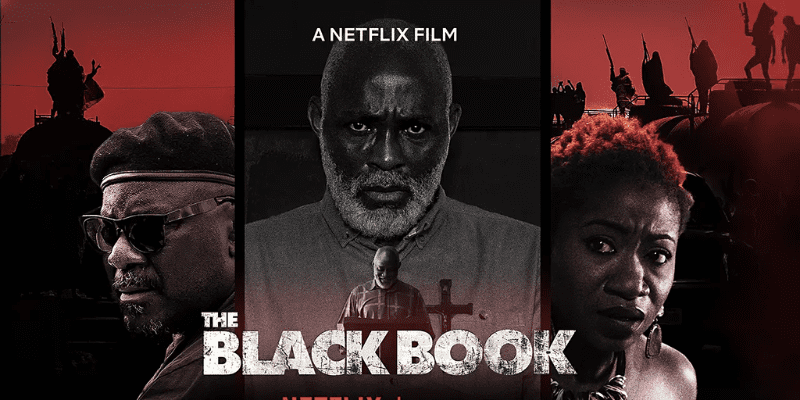Fintech platforms are increasingly looking for innovative ways to service their customers, one of which reinforces the motive behind the BNPL (Buy Now Pay Later) many have started to employ.
This novel credit offering model has, in the past couple of years, gained more prominence, specifically for the instant gratification and delayed payment that it provides for the growing number of creditors.
The services essentially accomplish exactly what they claim to do, as shoppers who use BNPL typically take out short-term loans to pay for their purchases and then commit to a payback schedule.
In Nigeria, these services have seen individuals take up purchase commitments for mobile phones, for starters, with these credit agreements now extended to include a couple of household items.
The increasing discussions around the atrocious behaviours of credit offering platforms in the country have undoubtedly also pointed a spotlight on the BNPL fintechs and their modus operandi.
The growing popularity of the services has also sparked questions about how much debt these BNPL enterprises are allowing individuals to take on and how quickly it’s happening.
What are BNPLs?
BNPL credit models have existed for a long time on the Nigerian scene but are slowly becoming formally recognized by fintech credit lending startups.
BNPLs are interest-free instalment loans for small, short-term purchases. They operate on similar models to those employed by organizations to give out electronics and household items to workers with the intention of recovering the amounts in bits over a specific period of time.
Consider it like paying for a dishwasher in instalments, but instead of putting it on hold until the whole amount is paid, users take it and pay later.


The only distinction between BNPL and other credit purchases is that BNPL does not impose interest on overdue payments.
Instead, BNPL lenders ascertain customers’ credit ratings by matching their monthly income to monthly spending, providing a straightforward, easy-to-understand, and practical approach to repayment possibilities. It’s also a cheap way for people to get assets.
Previously existing business model
The trend of BNPLs has existed within the country for a couple of years now but is slowly becoming more recognized as credit financing platforms begin to look for sustainable business models.
An existing BNPL model that a lot of people are particularly familiar with was the fintech platform mobile financing solutions, which provided ease of acquisitions as far back as 2019.
Over the previous four quarters of 2021, the BNPL payment business in Nigeria has grown rapidly, owing to growing eCommerce penetration as well as the economic downturn induced by the COVID-19 epidemic.
According to the Q2 2021 BNPL Survey, BNPL payments in the country are predicted to increase by 67.4% annually, reaching US $341.9 million in 2021.
The reports also suggest that the usage of BNPL payments is predicted to increase significantly as the BNPL sector in Nigeria continues to expand in the medium to long term.
With a projected CAGR of 26.2% between 2021 and 2028, the country’s BNPL Gross Merchandise Value in 2028 will have risen from the US $204.3 million observed in 2020 to US $1741.1 million.
What are BPNL offerings?
Because banks have been sluggish to respond, or rather, uninterested in point of sale financing, fintechs are practically gaining all of the value.
This credit financing model has so far provided value that has benefited all parties; the BNPL company, the merchant, and the customer, as the case may be.
Just like any other loan, it is still up to the consumer to make timely payments to maintain a healthy credit score, but BNPL offers a convenient way for people to take up asset ownership.
Individuals can easily obtain BNPL financing for a N100,000 dishwasher rather than make a one-time payment in most cases.
Easybuy, Credpal, CDCareNG, Altmall, CreditClan, and Carbon Zero are some of the BNPL merchants that exist in Nigeria and have created unique financing models for Nigerians.
Are BNPL’s landmines waiting to explode?
Unlike the activities of traditional financial institutions, a lack of control by both parties (merchants and customers) has cast doubt on whether the loans are safe or the start of a larger financial disaster.


The discussions also encompass how much success these platforms can achieve in the Nigerian landscape. Aside from the numerous benefits of providing credit facilities to customers, are these credit models a sustainable fintech business model or a looming disaster?
The ease of getting credit offerings and paying them off is essential in Nigeria, where people have limited access to loans from formal banking institutions.
However, Nigerians are prone to defaulting on loan repayment, a single conflicting problem most fintech credit offering companies have to constantly battle with.
This model, though novel, is prone to having rough terrain as per capita income remains low. This might have made lending attractive, but it will also lead to a strain on debt collections.
There have also been incidences of people acquiring loans of whatever form for third parties whose credit ratings are low, creating a strain on the systems and conflict in repayment. In Nigeria, where individuals have limited access to conventional financial services, the simplicity of obtaining credit and repaying it is critical.
Nigerians, on the other hand, are prone to defaulting on loan repayments, an issue that most fintech credit-offering organizations must contend with on a regular basis.
Although unique, this strategy is prone to stumbling blocks as long as per capita income stays low. This may have made lending more appealing, but it will put a load on debt collection.
There have also been instances of people obtaining loans of any kind for third parties with poor credit scores, putting a burden on the systems and causing repayment disputes.
BNPL isn’t simply giving away free money, obviously. Participating businesses pay BNPL services a small fee in exchange for the additional business, but the conditions and disclosures to consumers are unclear.
The price disparity between the actual selling price and that offered by the BNPL merchant is a key factor for Nigerian customers.
Speaking with Technext.ng, Desoye, who had once used BNPL credit financing to purchase a Samsung smartphone had disclosed he was charged 185,000 instead of the regular retailing prices of between 160,000 naira to 165,000 naira.
At the same time, the danger of default is a top-of-mind concern for merchants, as Nigerian customers have been known to default irrespective of the credit agreement.
Although BNPL is marketed as an interest-free alternative to credit card payments, governmental authorities and consumer protection organizations have expressed concerns that it might encourage overspending and minimize client risks.
The ease of asset acquisition provided by this model could invariably lead to impulse spending, particularly for individuals with low financial prudence.
Citing an instance, the user who spoke to us had also claimed to have been tempted to buy a similar smartphone for his spouse, after completing the first repayment, even though he could have avoided such expenses. But the relative ease of acquiring the device was too strong a temptation to ignore.
As with every other country, the race to amass the possibilities in BNPL financing is still fresh, with an estimate that the BNPL industry will rack up $680 billion in transaction volume worldwide in 2025.
This financing model will, for a long time, continue to appeal to the millions of people turning to digital funding as a result of the coronavirus pandemic’s economic consequences.
Firms may outcompete others and gain market dominance. Customers’ needs, however, will grow in tandem with the growth of ecommerce, and BNPL offers more credit financing options.






